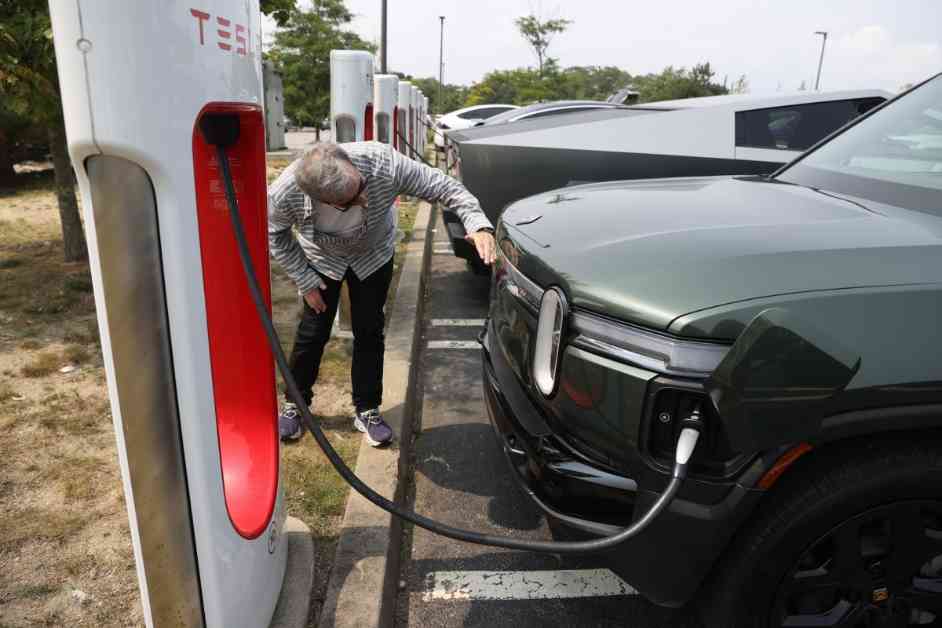Major Automakers Join Tesla Supercharger Network
The landscape of electric vehicle charging in North America has undergone a significant transformation over the past 18 months, sparked by Ford’s groundbreaking decision to allow its EV owners access to the Tesla Supercharger network. This move set off a chain reaction in the industry, with automakers like GM, Rivian, Hyundai, and Mercedes quickly following suit. By the end of 2023, nearly every major automaker had committed to adopting Tesla’s North American Charging Standard (NACS) and providing adapters to their EV owners to access Tesla’s charging infrastructure.
One of the most recent developments in this shift towards a unified charging standard came from GM, which announced that owners of GM electric vehicles such as the Chevrolet Silverado EV and Cadillac Lyriq would now have official access to Tesla’s Superchargers. To utilize this access, GM EV owners will need to purchase GM-approved adapters that enable charging at Tesla’s ports, signaling a new era of collaboration and interoperability in the EV charging space.
Tesla’s Influence on EV Charging Standards
In November 2022, Tesla took a bold step by sharing its EV charging connector design with the aim of promoting a unified charging standard in North America. At the time, most automakers were using the Combined Charging Standard (CCS) for their EVs in the region. Despite the superiority of Tesla’s charging network in terms of design and user experience, widespread adoption of the NACS seemed unlikely.
However, Ford’s decision to partner with Tesla marked a turning point in the industry, paving the way for other automakers to embrace the NACS and commit to integrating their future EVs with Tesla’s charging ports. Rivian, GM, BMW, Honda, Hyundai, Volkswagen, Porsche, Audi, Kia, Lucid, and Stellantis were among the companies that followed suit, signaling a collective shift towards a standardized approach to EV charging.
Expanding Access to Tesla Superchargers
As automakers continue to align with Tesla’s charging standard, the number of NACS ports available to EV owners in the U.S. has been steadily increasing. While Tesla’s network boasts over 36,000 NACS ports, compared to around 16,000 CCS ports, the transition to a unified standard has not been without challenges. EV owners with CCS ports have had to wait for manufacturer-approved adapters to access Tesla’s Superchargers, with some opting for third-party solutions that may not meet safety and performance standards.
In response to the growing demand for access to Tesla’s charging infrastructure, GM announced the availability of GM-approved adapters for its EV owners, ensuring compatibility and protection for their vehicles during charging. With Tesla ramping up production of adapters and GM facilitating access for its customers, the future looks promising for non-Tesla EV owners seeking to utilize Tesla’s Supercharger network.
As the automotive industry continues to evolve towards a standardized charging standard, automakers like Ford, GM, Kia, and Rivian are taking proactive steps to enable their EV owners to access Tesla’s Superchargers. By providing adapters and integrating NACS ports into their vehicles, these companies are paving the way for a more convenient and efficient charging experience for EV drivers across North America. TechCrunch will continue to monitor and update the list of automakers gaining official access to the Tesla Supercharging Network, reflecting the ongoing progress towards a unified EV charging ecosystem.











